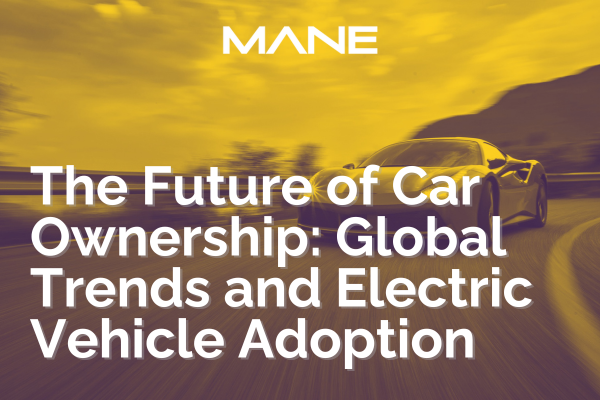The Future of Car Ownership: Global Trends and Electric Vehicle Adoption
17 Oct, 20242minsAs the automotive industry continues to evolve, a new study from consulting firm Arthur D. L...

As the automotive industry continues to evolve, a new study from consulting firm Arthur D. Little sheds light on global car usage trends and the future of electric vehicles (EVs). The research, based on a sample of 16,000 drivers across 25 countries, reveals intriguing insights into the future of personal transportation.
Global Car Usage on the Rise
Despite growing concerns about climate change, the study found that car use continues to increase on a global scale. This trend is particularly pronounced among low-income groups and those living in rural areas, where public transport options are often limited.
Urban vs Rural Divide
Interestingly, there's a significant divide between urban and rural attitudes towards car ownership:
• In European cities with populations over 5 million, 76% of respondents are willing to give up their cars.
• In contrast, only 62% of those in European towns with fewer than 250,000 people are prepared to do the same.
This stark difference highlights the impact of urbanisation and public transport availability on car ownership attitudes.
Regional and Age-Based Variations
The study also revealed fascinating regional differences in attitudes towards future car ownership:
• Drivers in Spain, France, Italy, Belgium, Norway, and Singapore predict that car ownership will be less important to them in 10 years.
• Conversely, respondents in Mexico, Saudi Arabia, and Turkey expect car ownership to become more important in the future.
Age also plays a role in these attitudes:
• Younger drivers (under 45) appear more attached to their cars when envisioning future habits, especially in Europe, North America, and China.
Factors Influencing Car Ownership Decisions
When asked what might persuade them to give up their personal vehicles, respondents cited:
1. New, lower-cost mobility services (50%)
2. High availability of such services (38%)
The top reasons for choosing new mobility services were:
1. Flexibility (62%)
2. Cost (52%)
3. Environmental concerns (44%)
The Electric Vehicle Landscape
While new registrations of electric vehicles continue to grow globally, reaching 14 million in 2023, several obstacles remain:
1. Higher upfront costs compared to traditional vehicles
2. Reduction in government subsidies in some countries
3. "Fear of the new" - prejudices and preconceptions about EVs
4. Uneven charging infrastructure
5. Concerns about charging time and battery life
Despite these challenges, EV owners show high loyalty, with 76% expecting to replace their current EV with another.
Industry Challenges
The automotive industry faces several challenges in this evolving landscape:
• Growing geopolitical rivalries affecting global supply chains
• Weak demand in China for European manufacturers
• Increasing competition from Chinese EV manufacturers
• Potential trade tensions between Europe and China over EV market practices
Conclusion
As we look to the future, it's clear that the automotive industry is at a crossroads. While global car usage continues to rise, there's a growing willingness in urban areas to embrace alternative transport options. The EV market shows promise but faces significant hurdles in widespread adoption.
For automakers, navigating this complex landscape will require careful consideration of regional preferences, urban-rural divides, and evolving attitudes towards car ownership. As the industry continues to innovate and adapt, we can expect to see significant changes in how we think about and use personal transportation in the coming decades.


